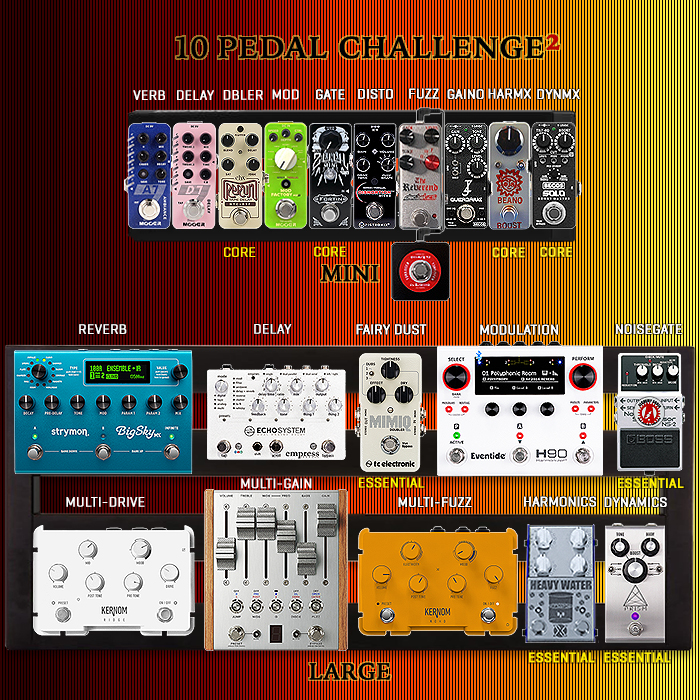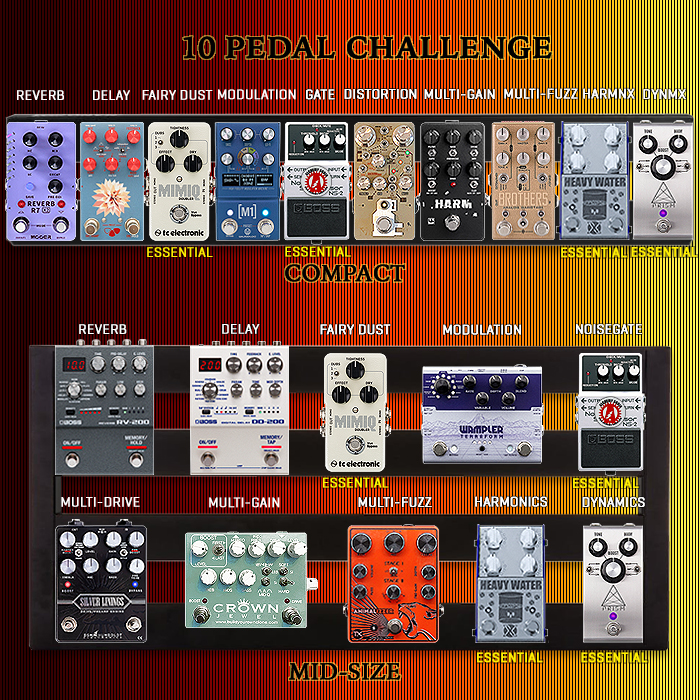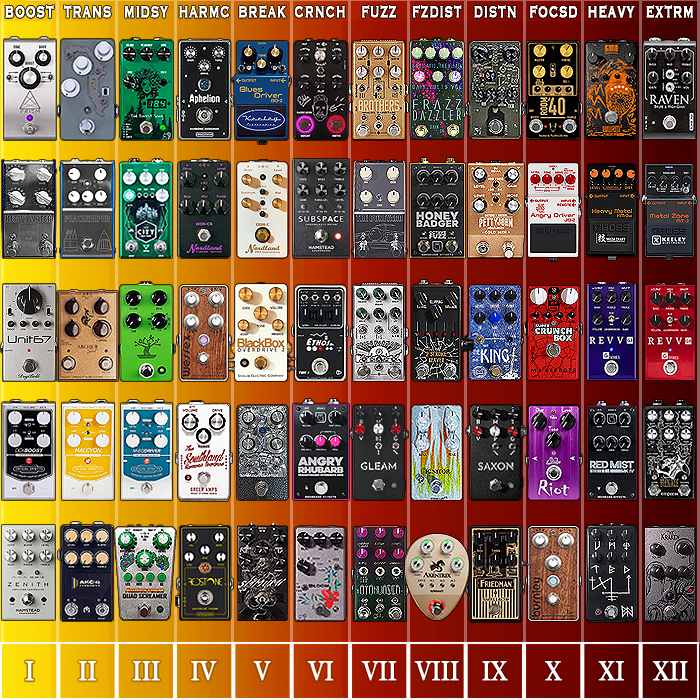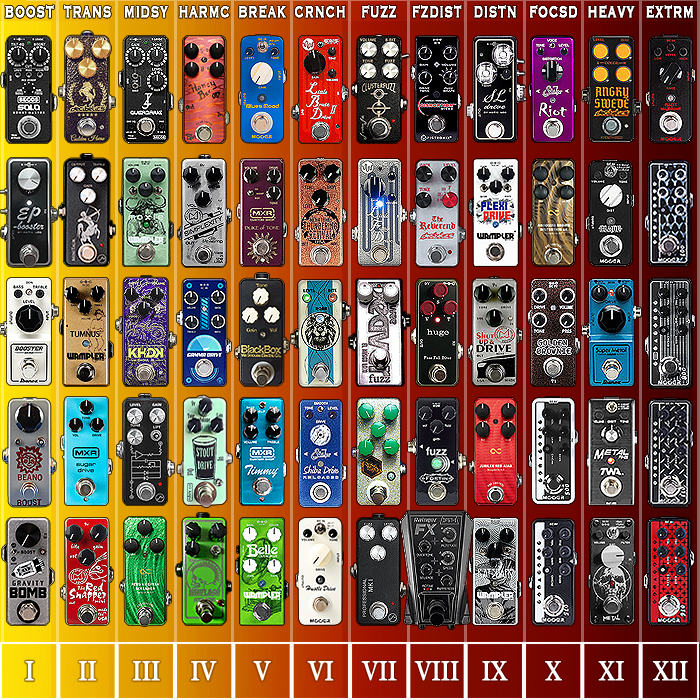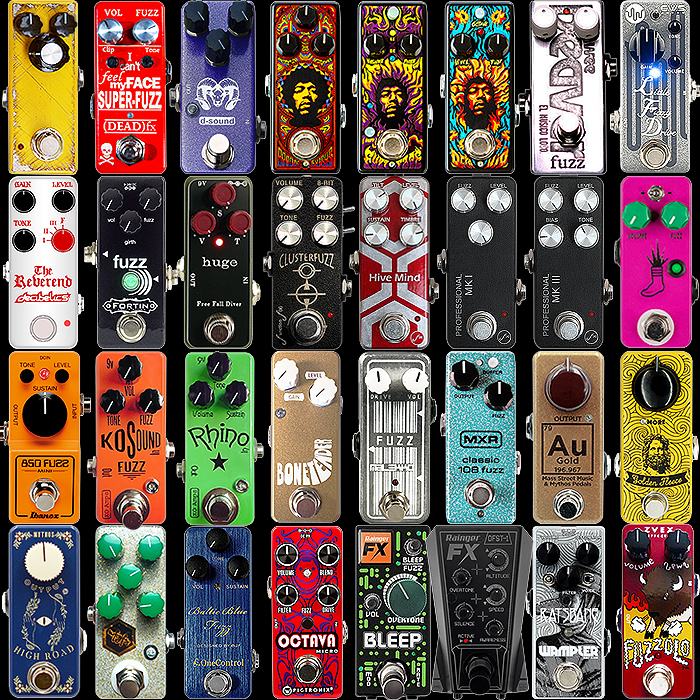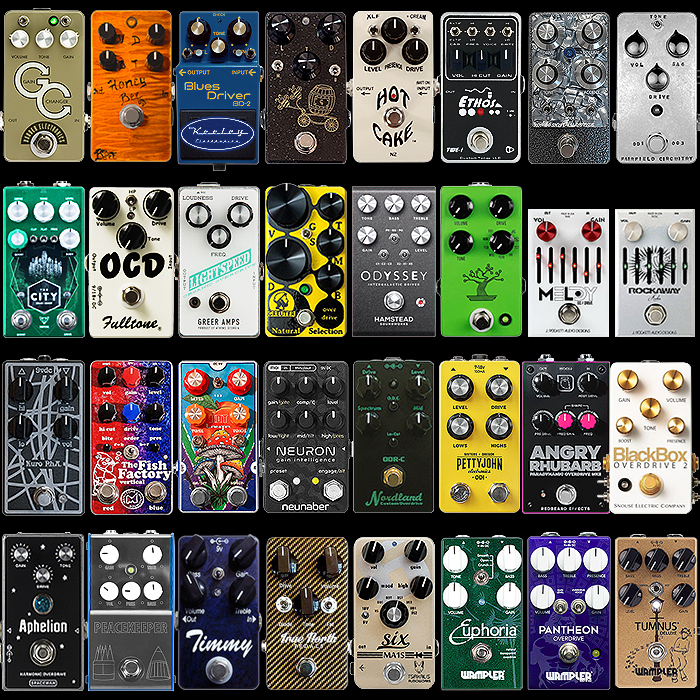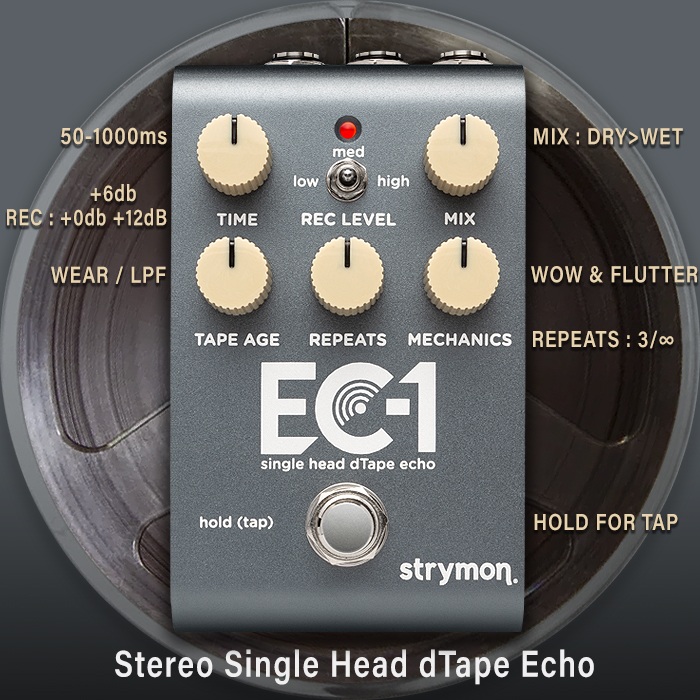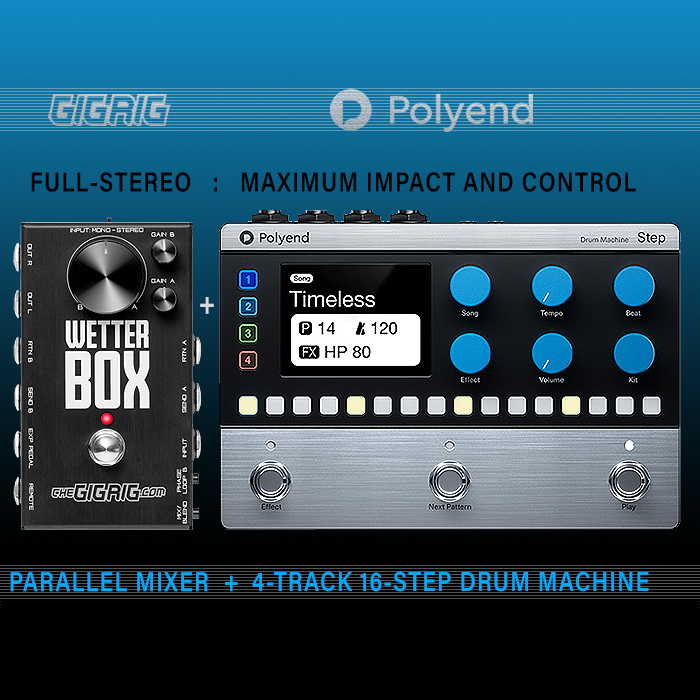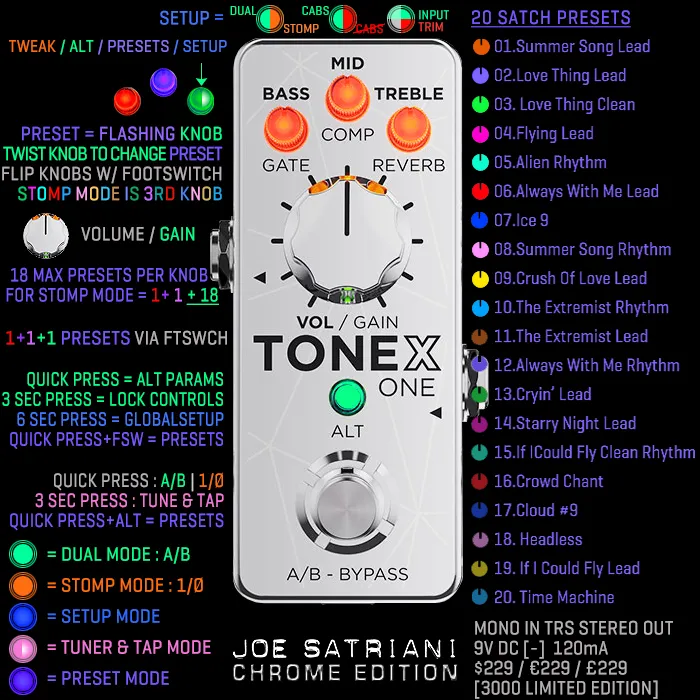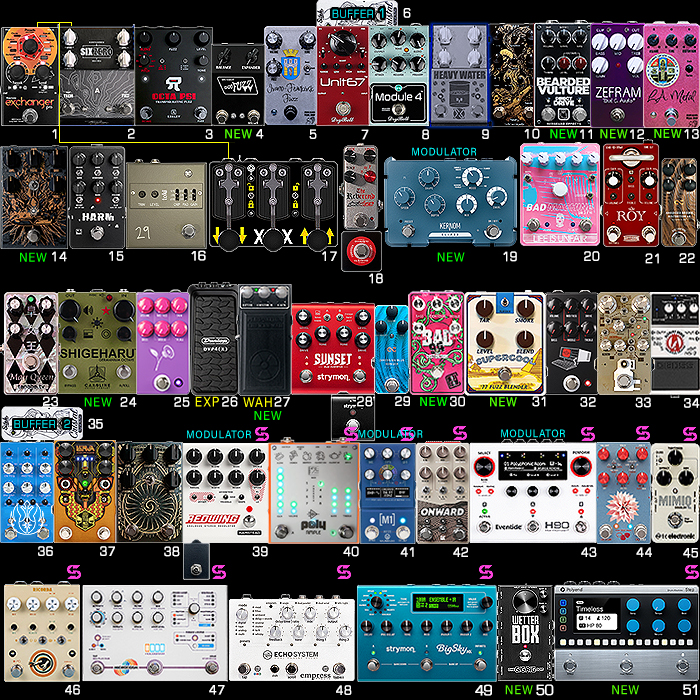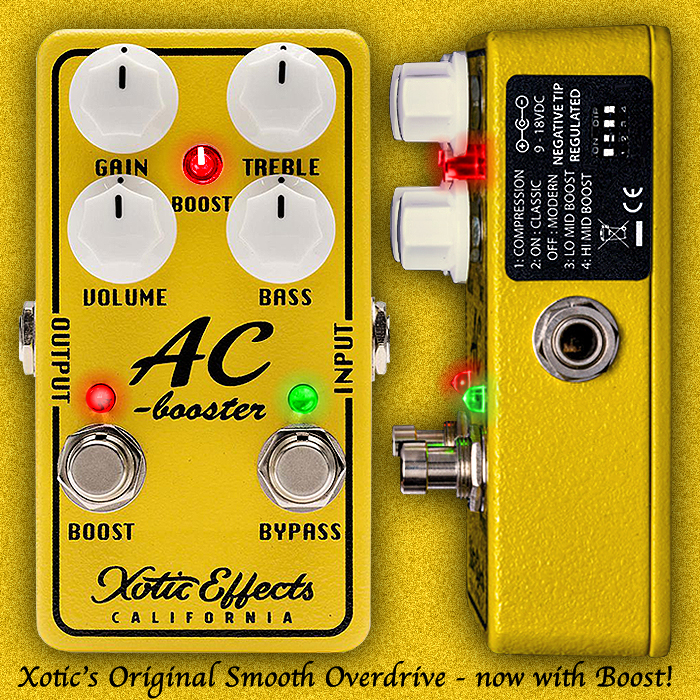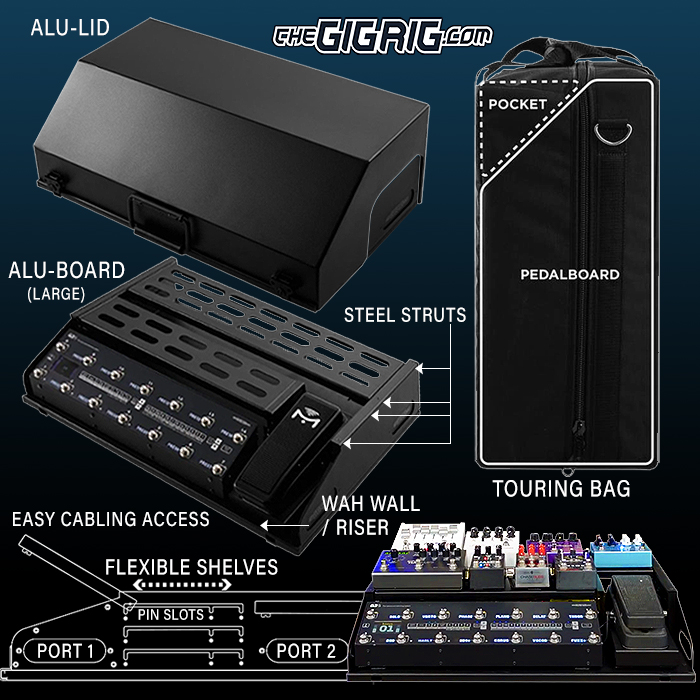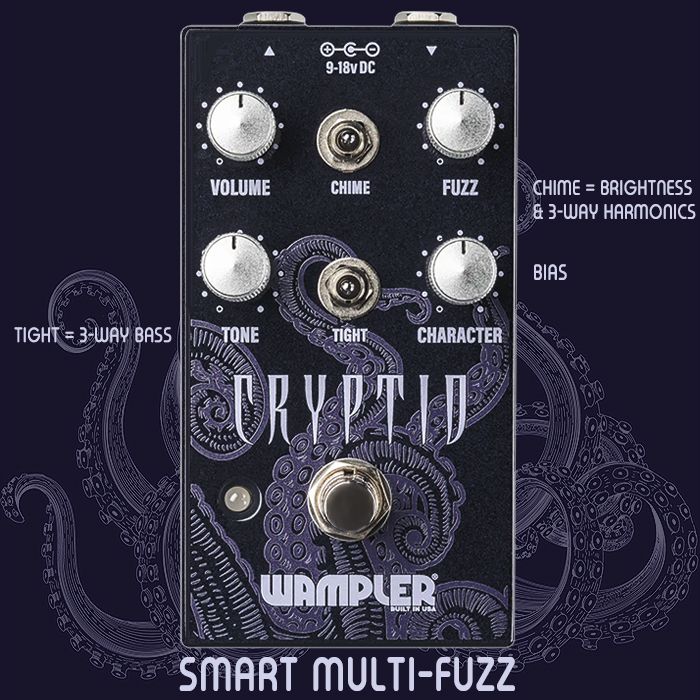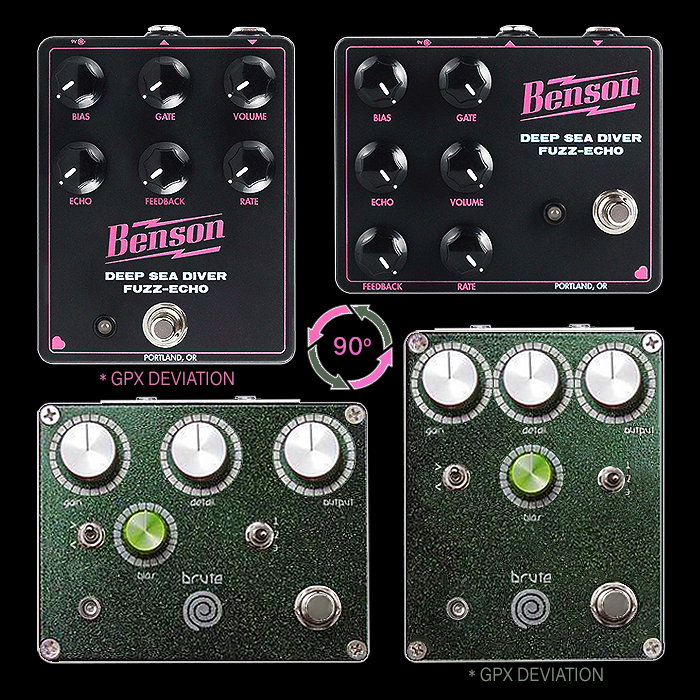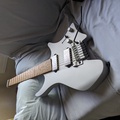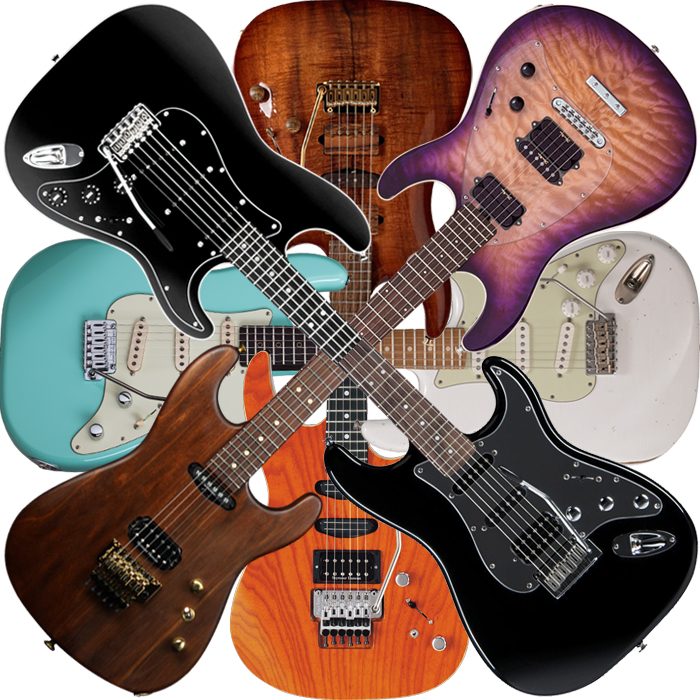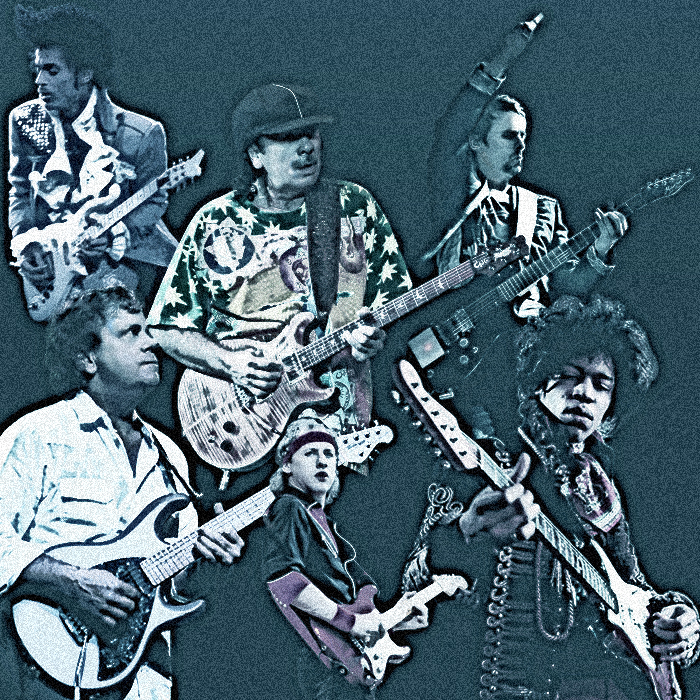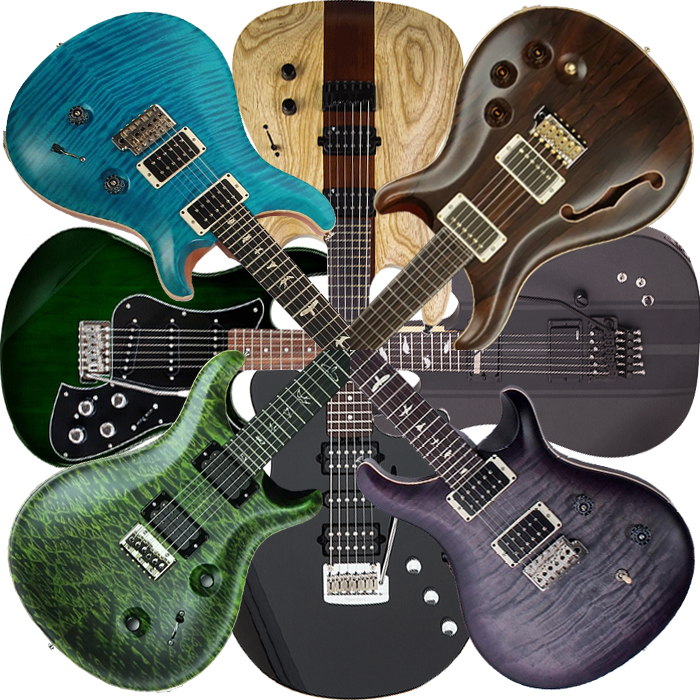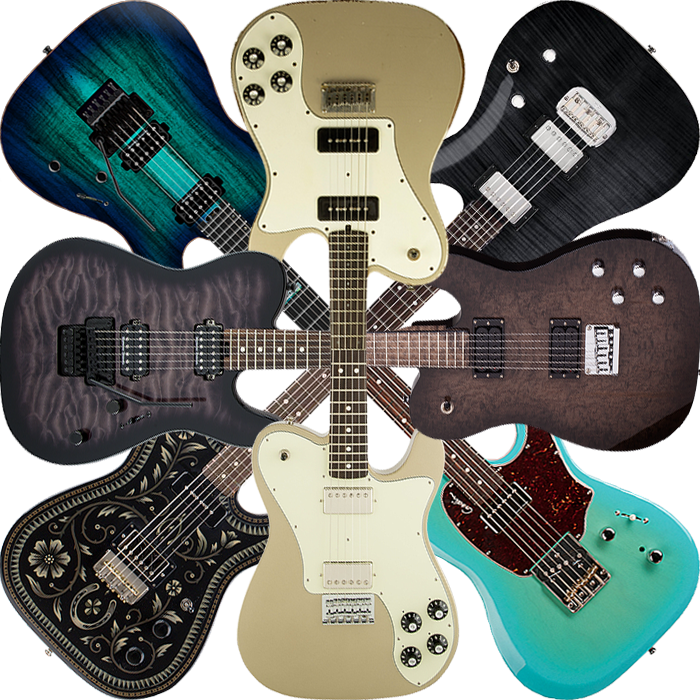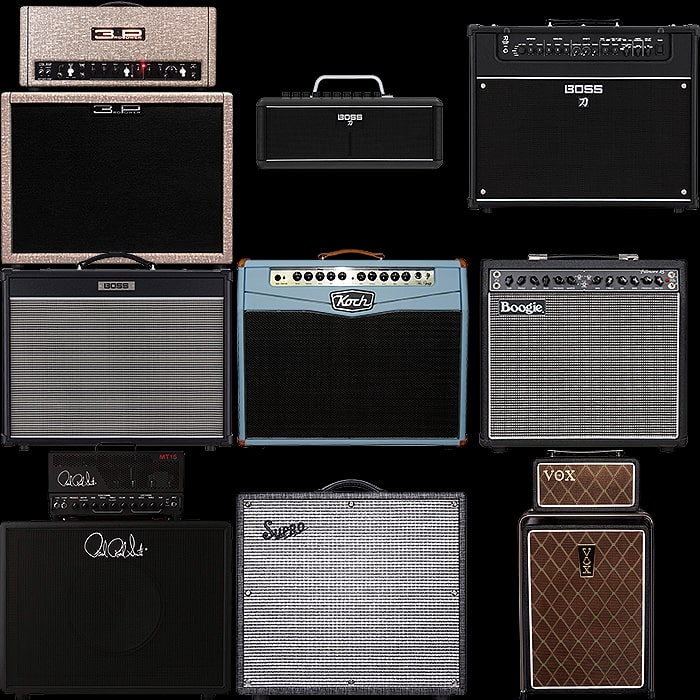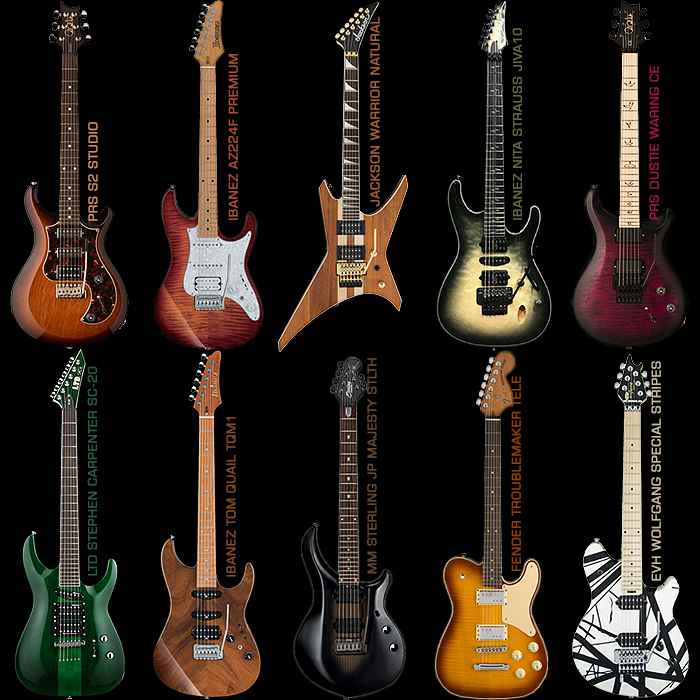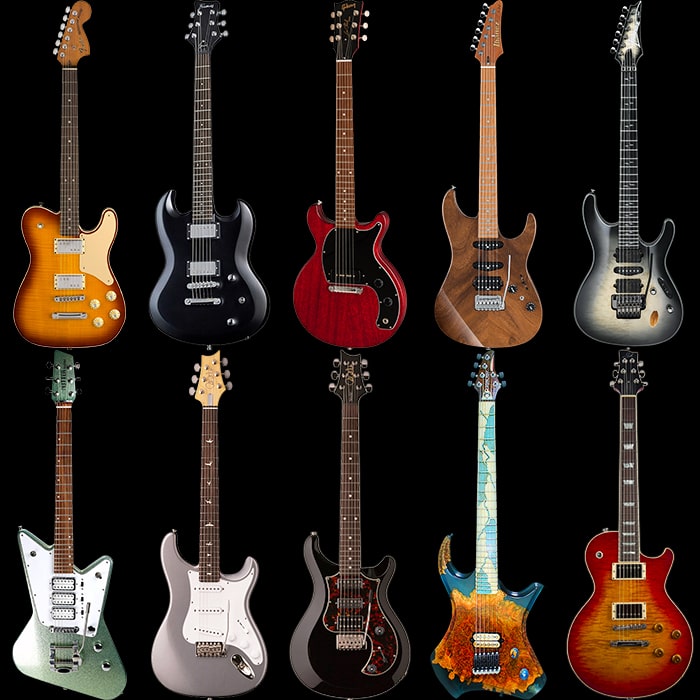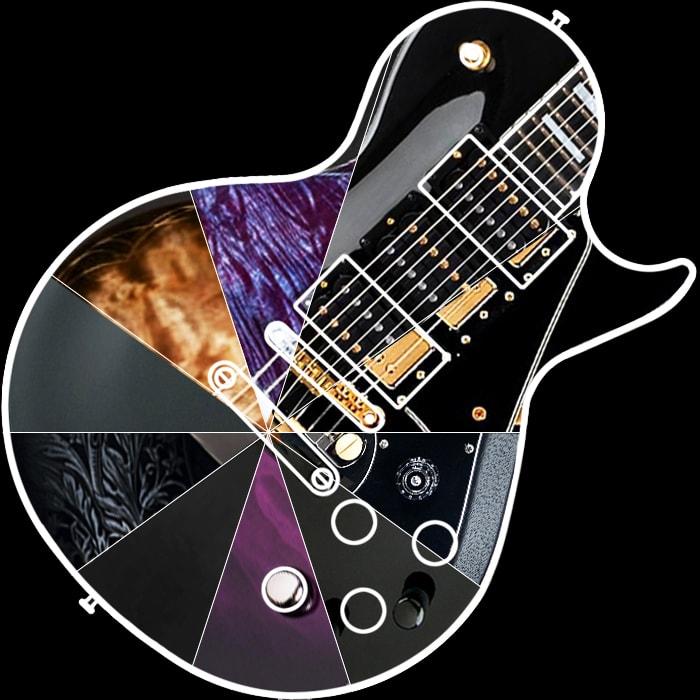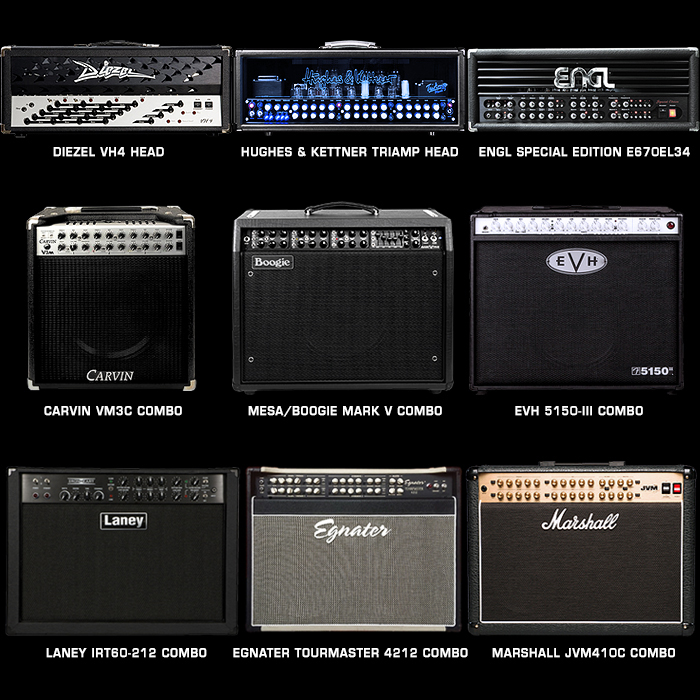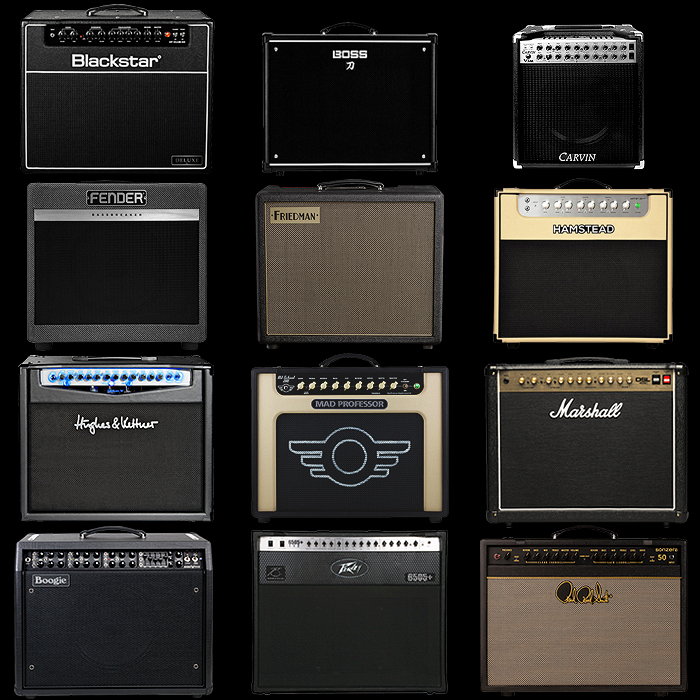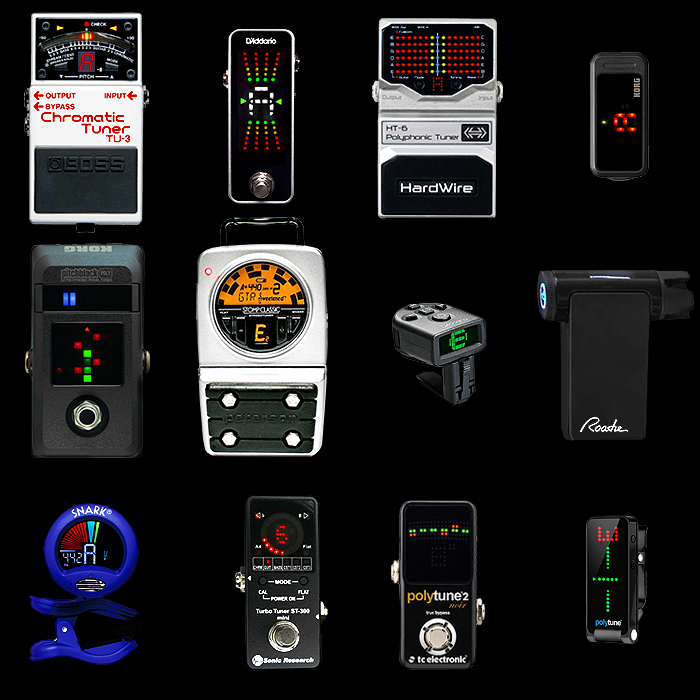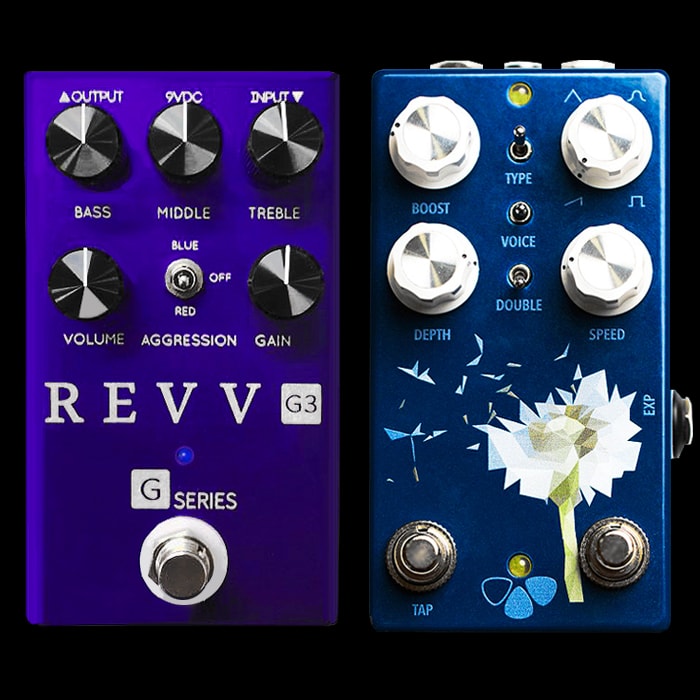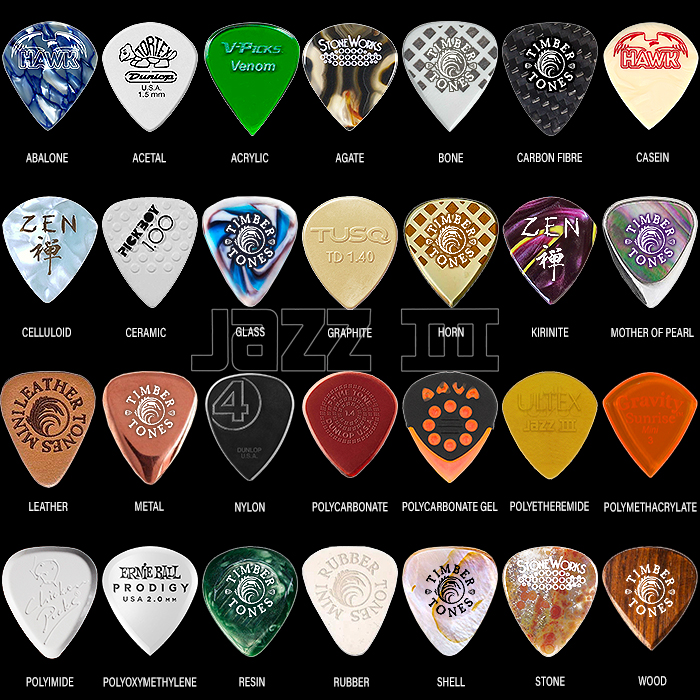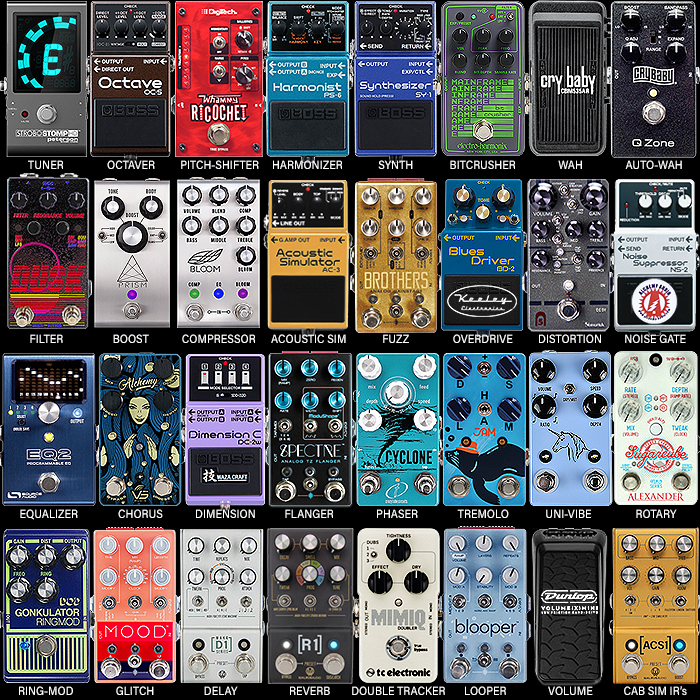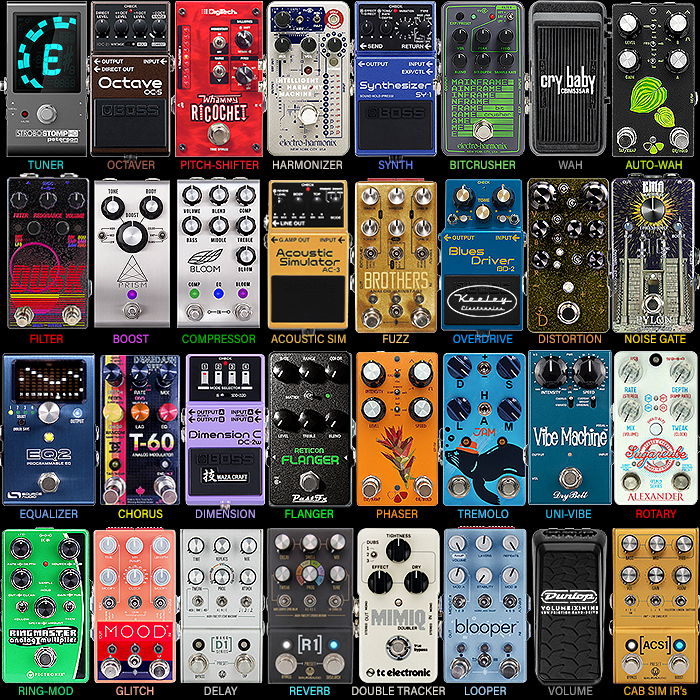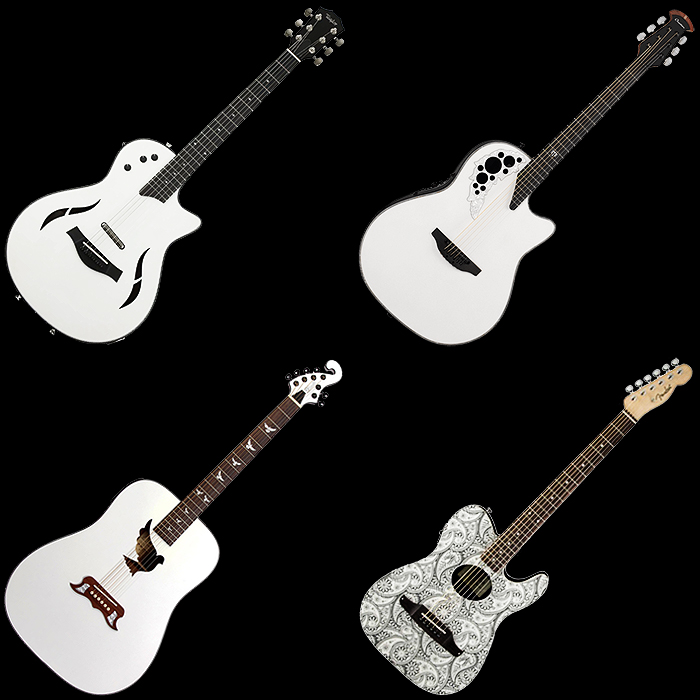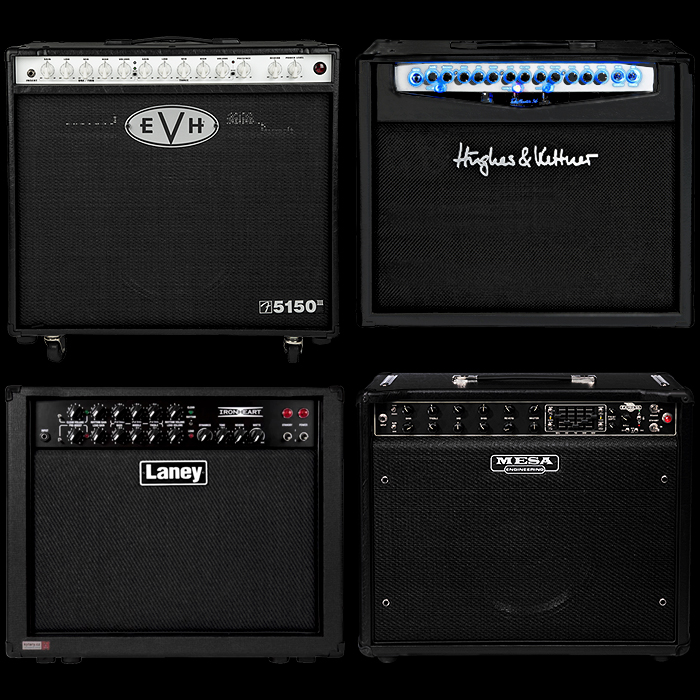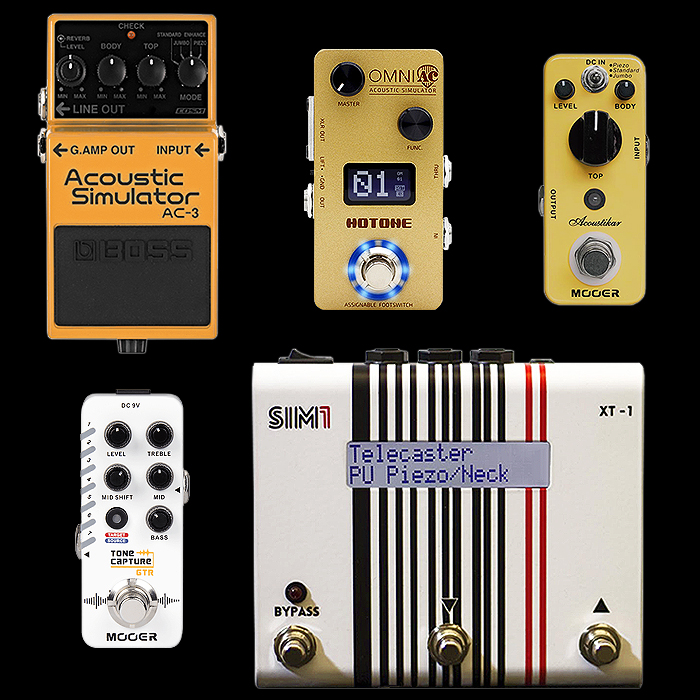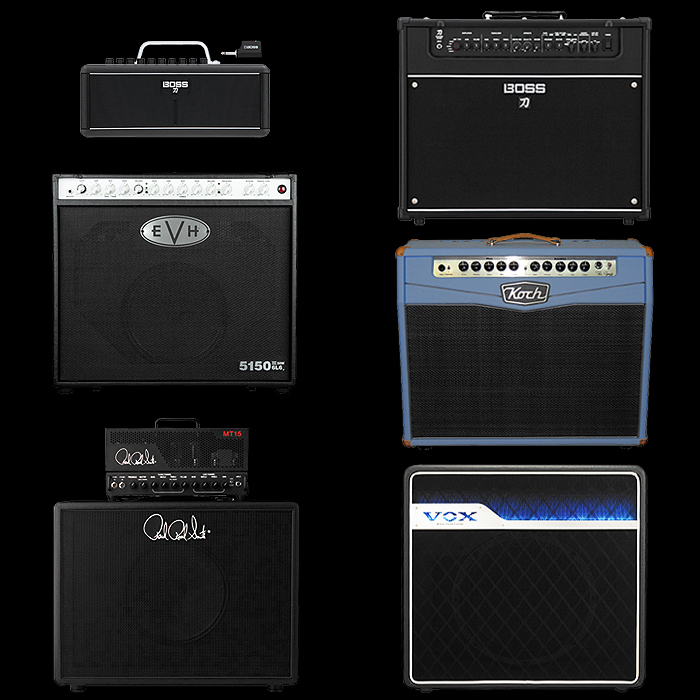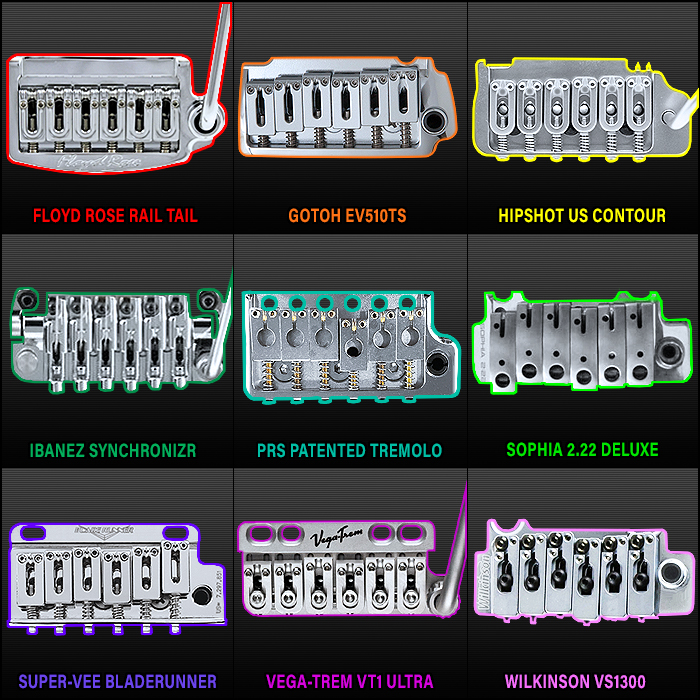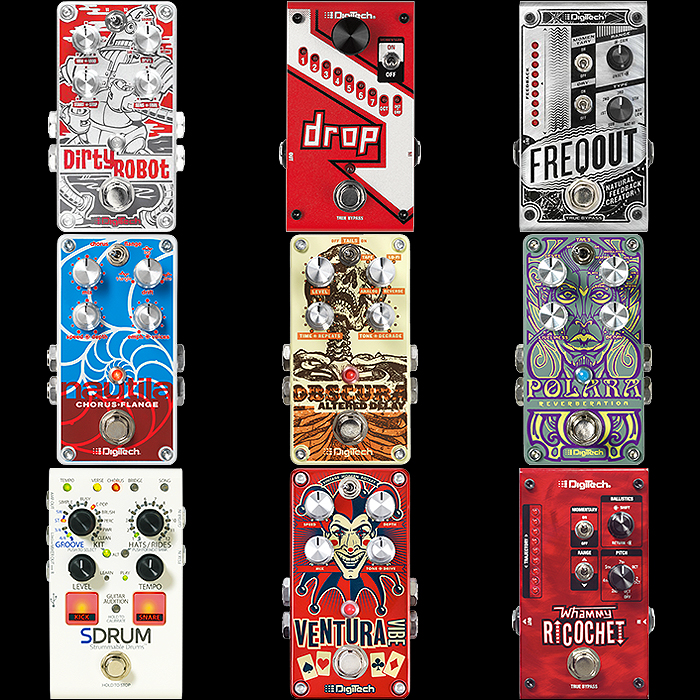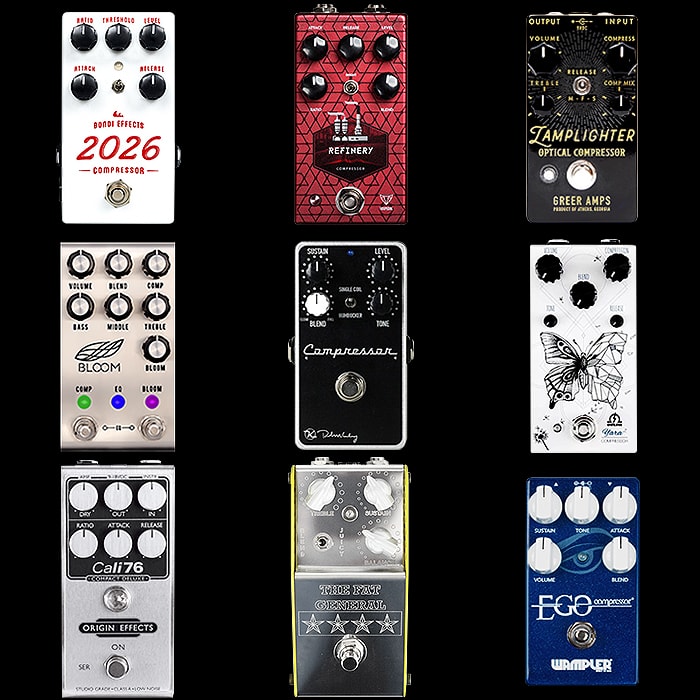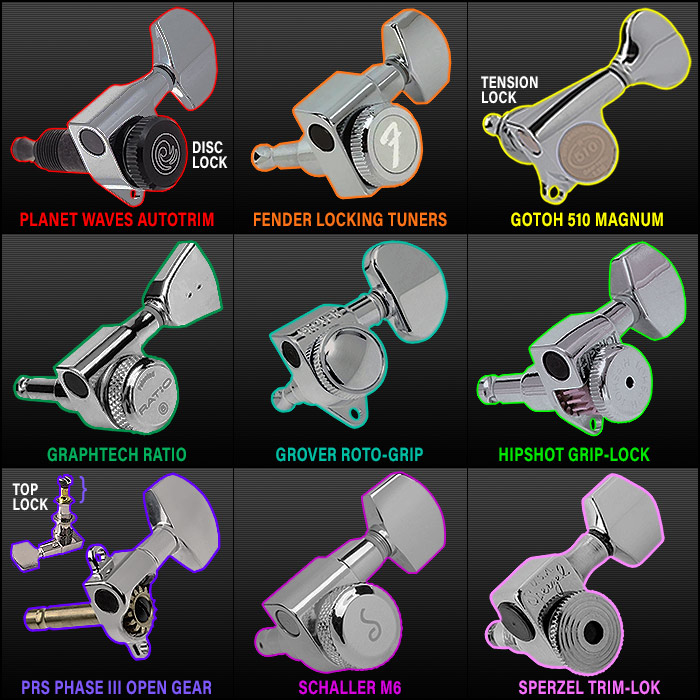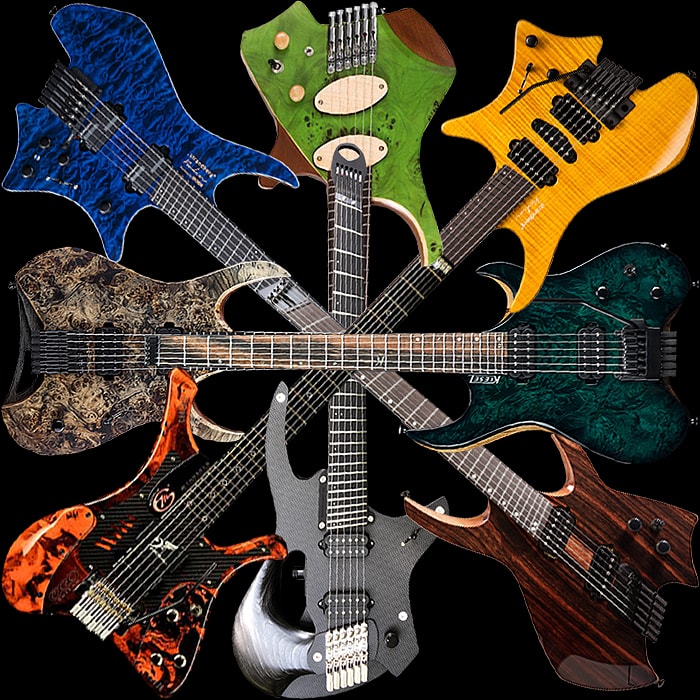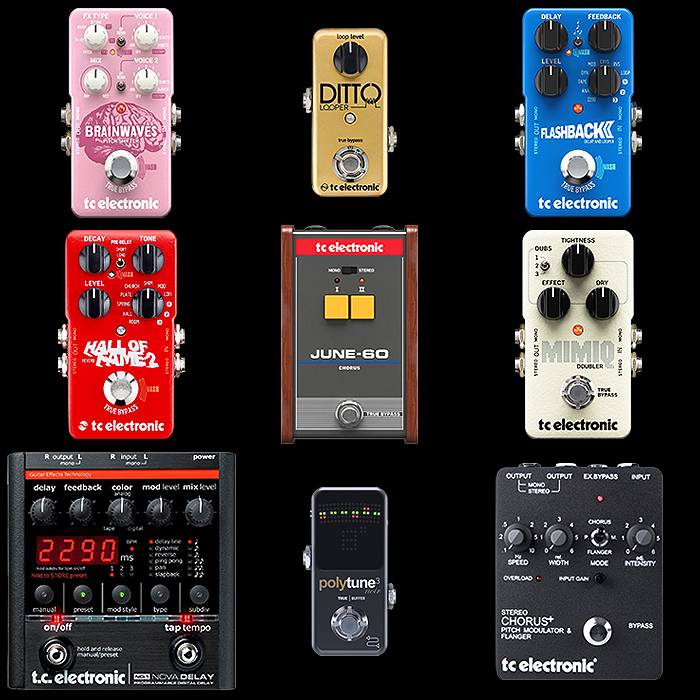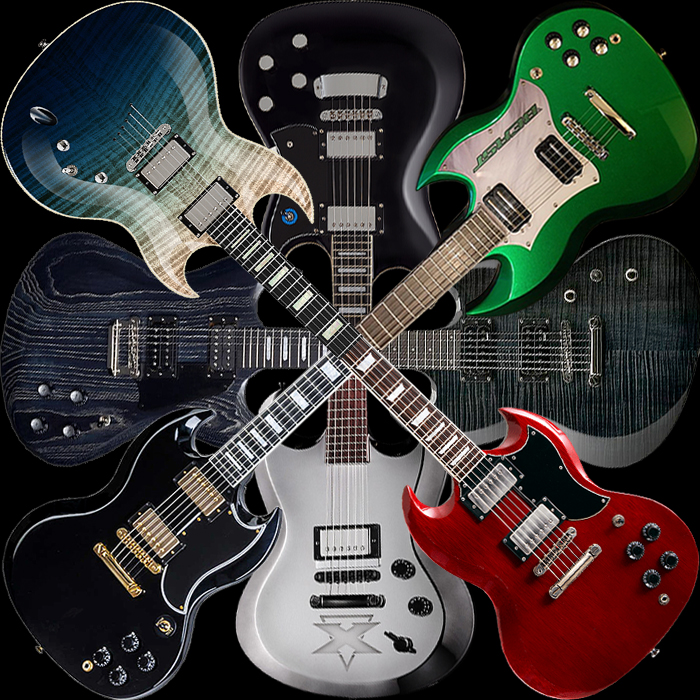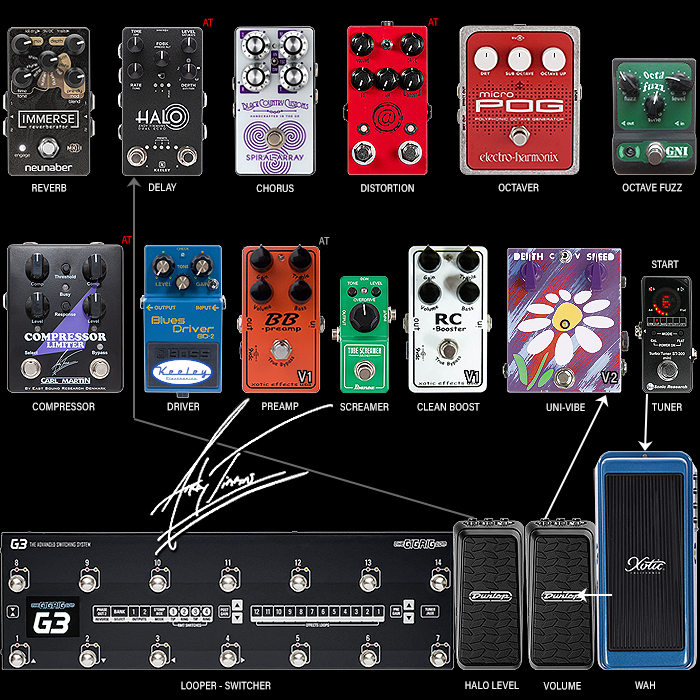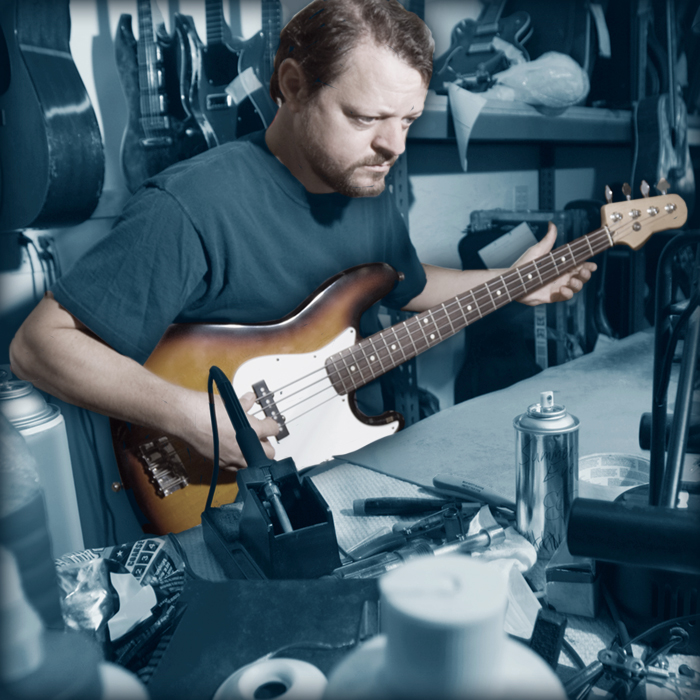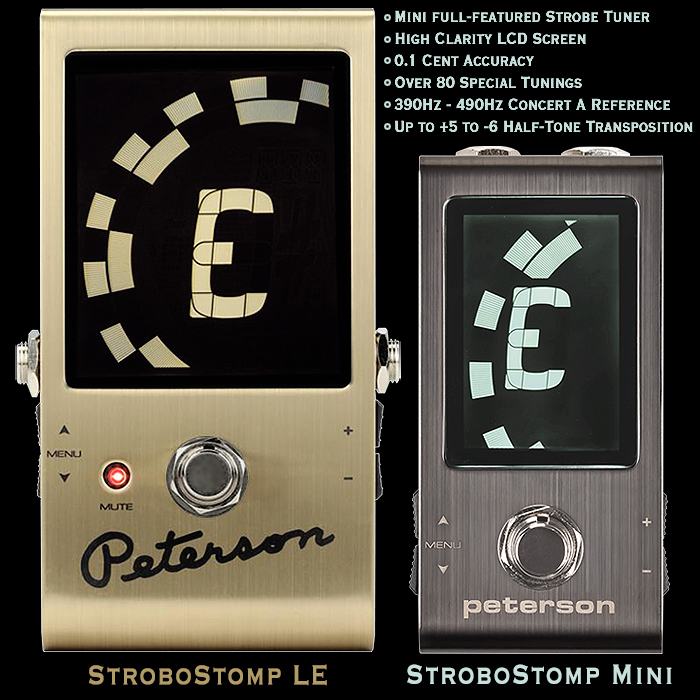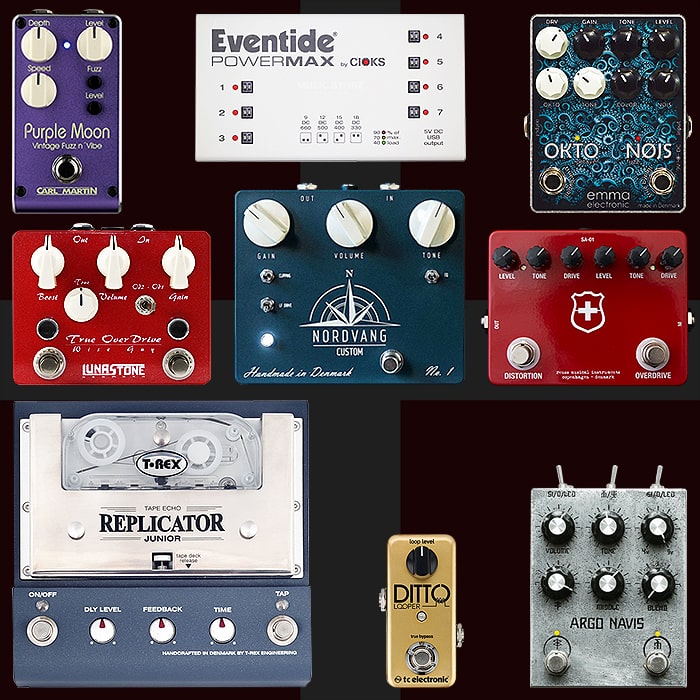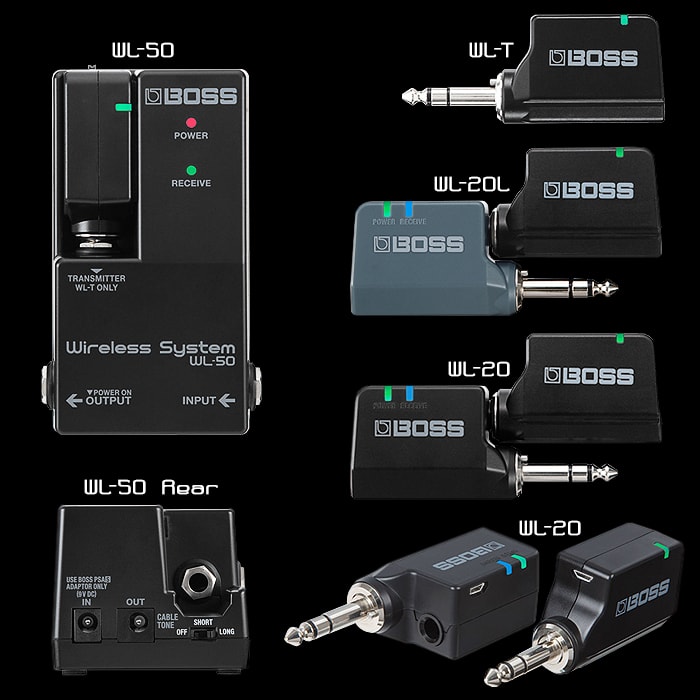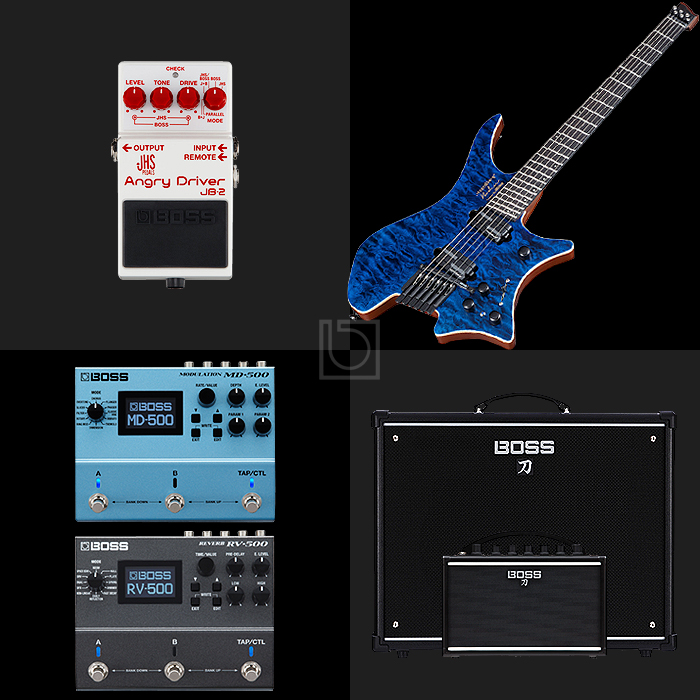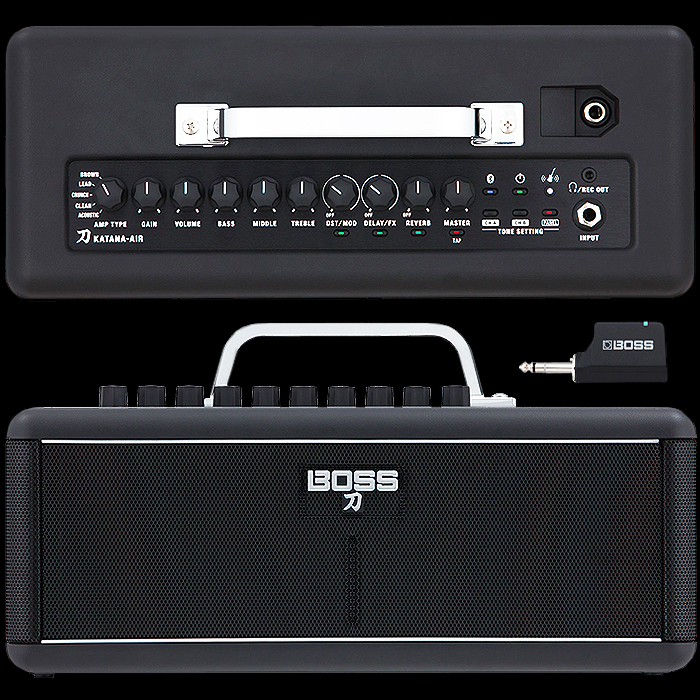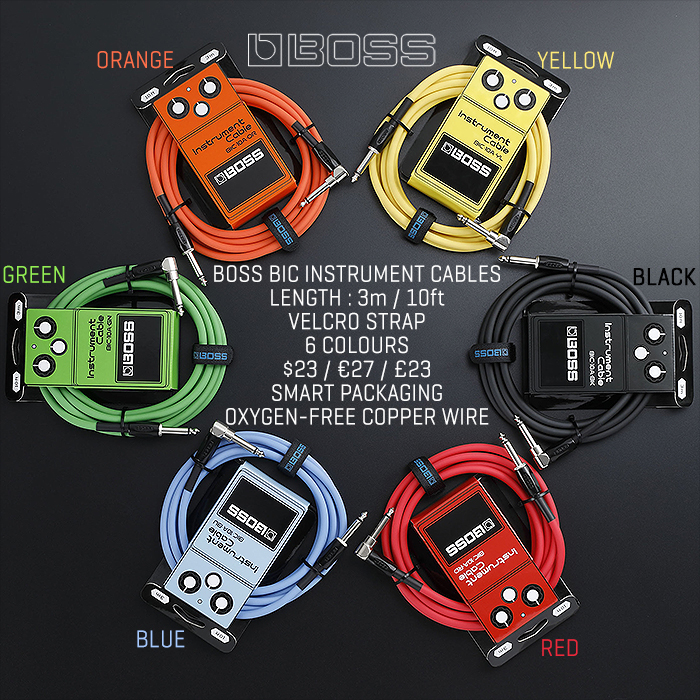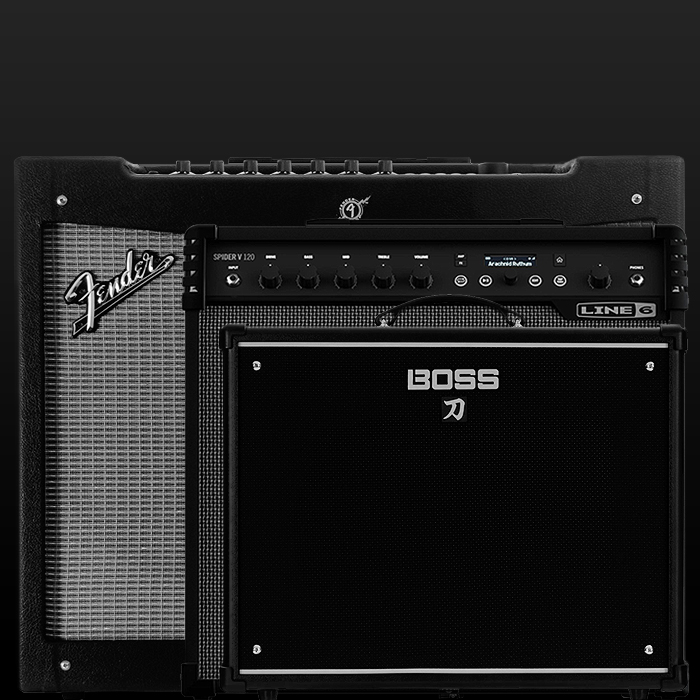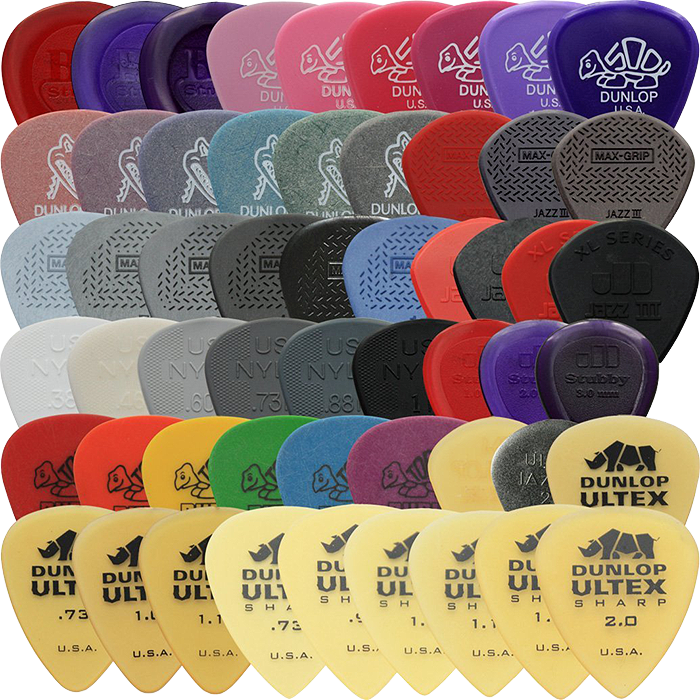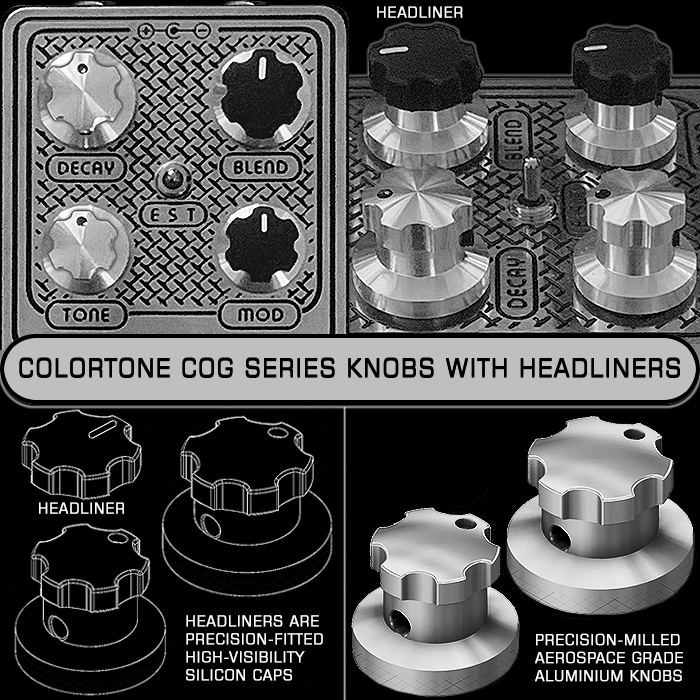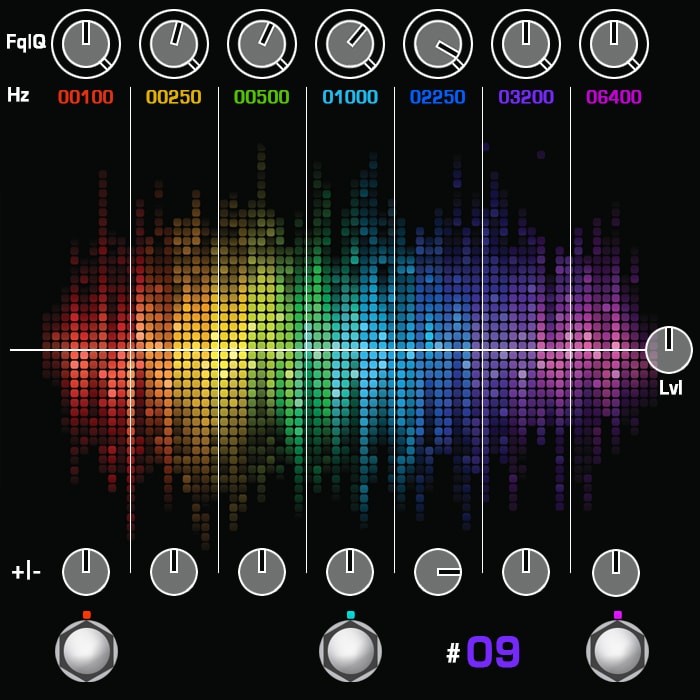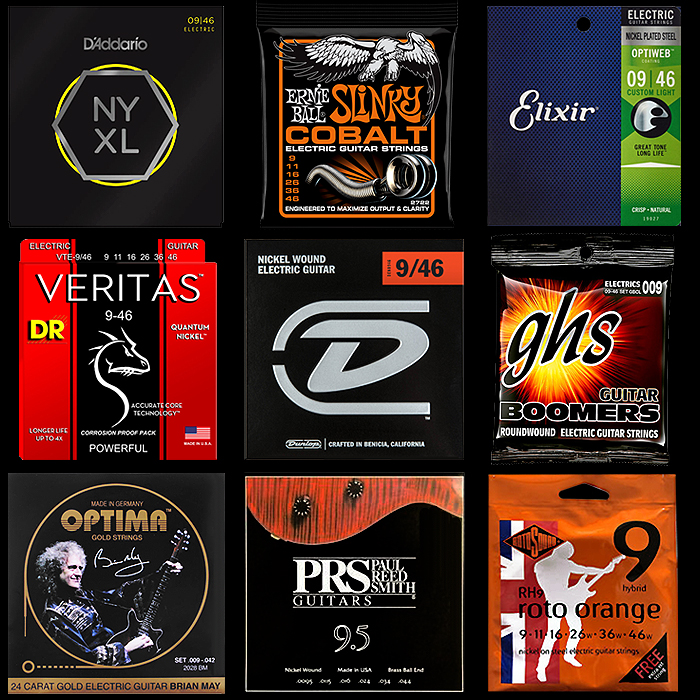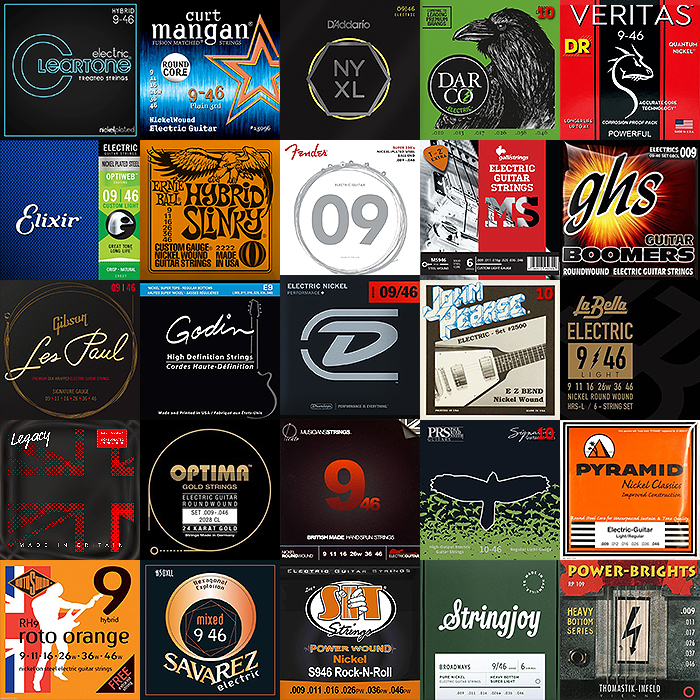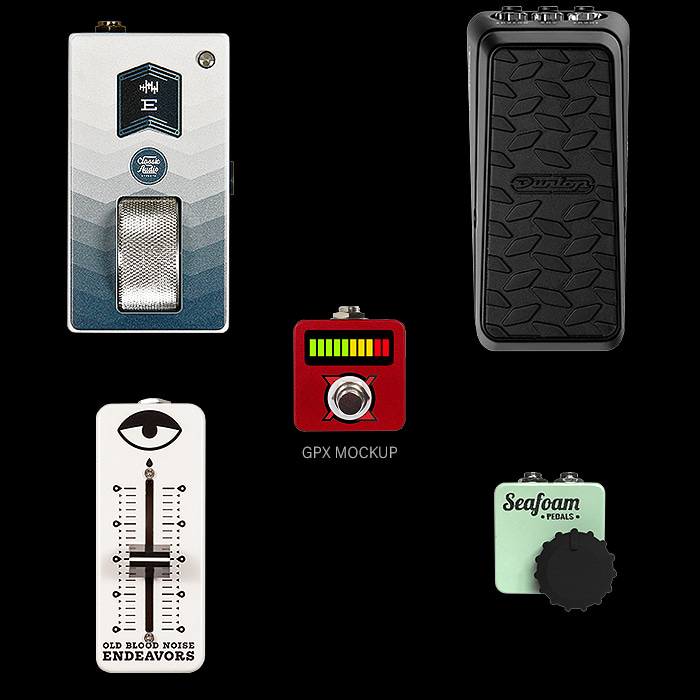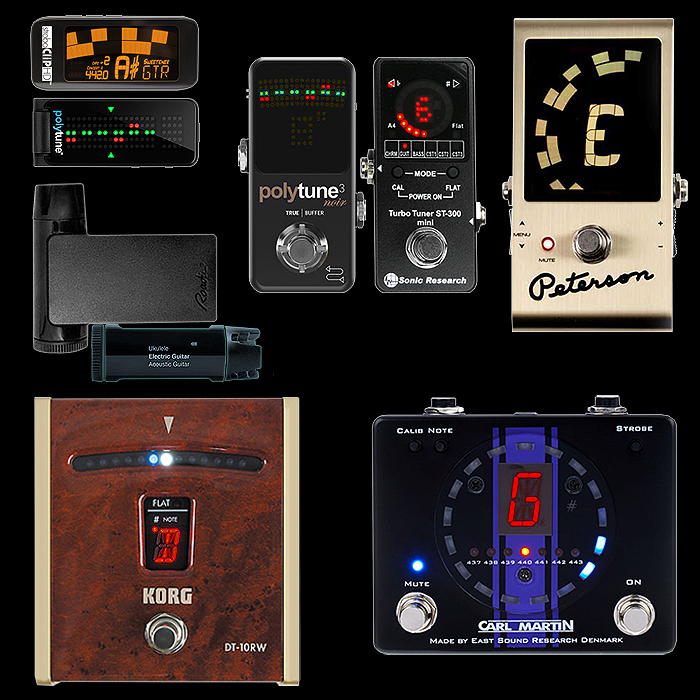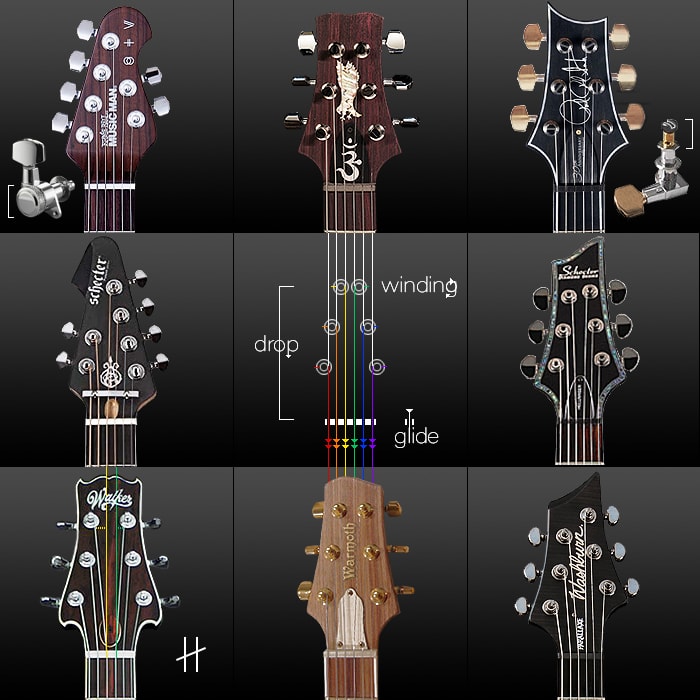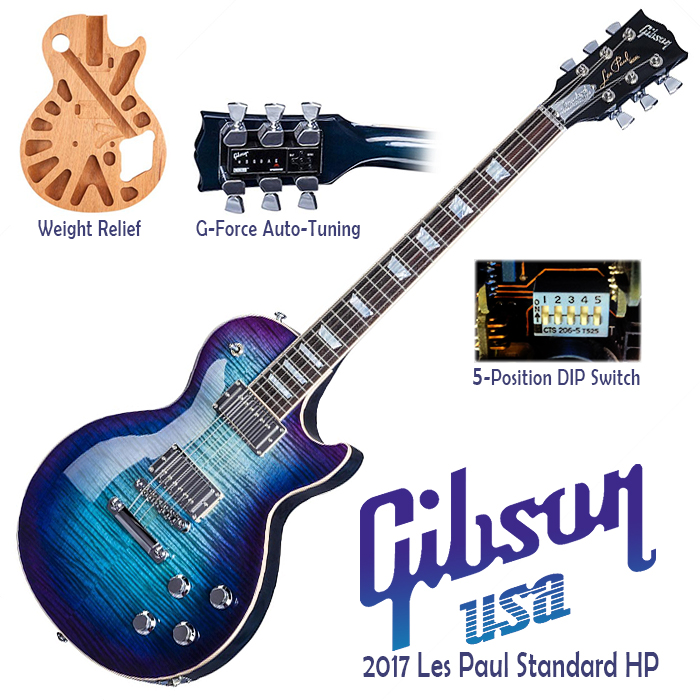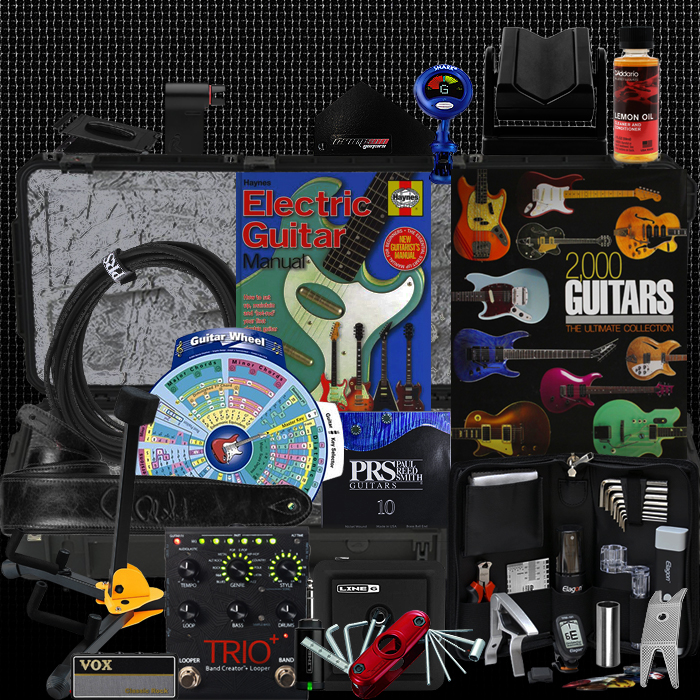Electric Guitar Tuning Essentials - Tools and Tips
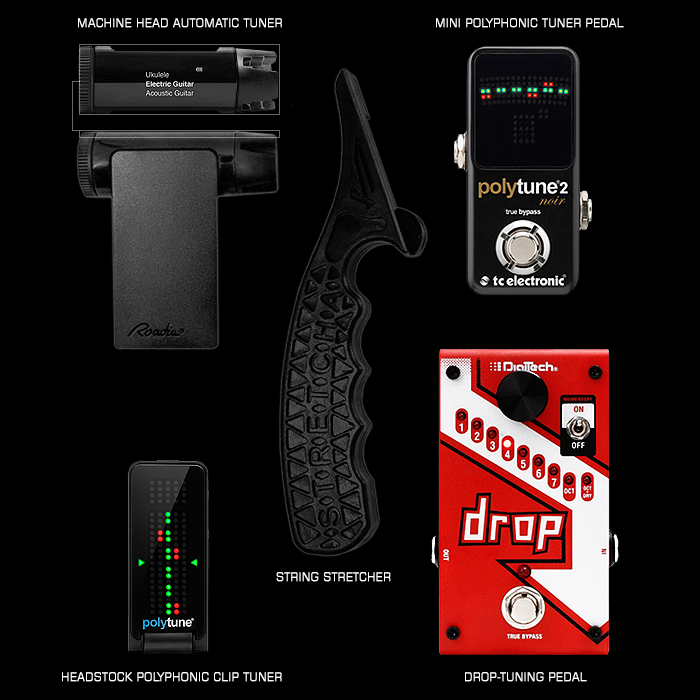
There’s both more and less to guitar tuning than most people might consider. At its most basic, guitar tuning can be done by ear - if you’re blessed to have perfect pitch you can hum to yourself the lower E and then tune the other strings relative to that - fretting each preceding string on the 5 or 4th(G) Fret. I have a pitch pipe for such a process - no electronics involved - simple but not particularly quick or efficient.
Then there is the various guitar tuners - which I would say were either microphonic - analysing the output signal or tone; or else vibrational - figuring out the pitch via analysing resonance from the headstock wood or even the tuning pegs / machine heads. I in fact avail myself of all the available technologies and outline each in order of my preferred tuning choice.
I then go into a few more technical details about tuning - yet not so much as doing a tutorial on setting perfect intonation - although I do touch on that. Generally this article is ordered with the most impactful elements near the top, and then more optional extras as we move down:
1 : The Roadie 2 Automatic Machine Head Tuner by Band Industries - £114
I have no hesitation in recommending this exceptional automatic machine-head tuner - where you select the particular tuning you want on the device - place the device on each tuning peg and 'strum the string until you hear the ping' - then move onto the next one in turn until all are complete. The process normally can be accomplised in around a minute or so - although it does depend how out of tune the guitar is, and what age the strings are. You can set up each of your guitars on the device - each with its own default tuning - however you might want it. It comes loaded with all the more obvious tunings, but not for instance with the Periphery drop-C++ tuning or whatever it is called. You need to use the mobile app to set up custom tunings and then sync those (via blue tooth) to the device. The tuning device has a front-facing light to help you slot it correctly onto each machine head, then you have a rotary dial with an integral button in its middle part. The device really could not be easier to use - and is a godsend for those with more complex tunings - 7, 8 or 9 string - which most of the rank and file tuners don't handle easily. This is the best tuner you will buy for sure. I always use it every third day or so, for a full tune, and in-between just make minor adjustments using my pedal tuner. Generally the Roadie is the quickest and most efficient means of tuning my guitars - I do occasional have questions about accuracy - as my PolyTune 2 Mini and Roadie don't always agree with each other. I've owned both Roadie versions, and however revolutionary the first one was, the second is infinitely better - all they need to do really for version 3 is allow you to set your custom tunings on the device, then it would be 100% stand-alone - everything else though can be done just with the device itself - in the noisiest room possible - the Roadie will work regardless.
2 : TC Electronic PolyTune 2 Noir Mini Polyphonic Tuner Pedal - £72
When I'm playing and I notice that the chords are no longer ringing entirely true - I hit my TCE Mini Pedal-Chain Tuner - which can give you a quick overview of all 6 strings simultaneously with a single strum. While you can tune just individual strings with the Roadie 2, it is far more efficient to do so using the PolyTune mini - in fact I very much use the 2 devices together - the mini pedal if just making tiny minor tweaks, and the Roadie - when several strings need adjusting. In any case the process usually starts with a quick strum though the PolyTune to see just how far out my tuning has gone. The key advantage of the Polyphonic tuners are those quick 6-string snapshots which are obviously much more efficient than checking each string individually. Some users still swear by the Boss TU-3 tuners - which are nice and clear, and possibly just a smidge more accurate than the PolyTune, there's also the Turbo Tuners from Sonic Research - which are highly regarded for their accuracy, but lack that Polyphonic capability I so like - the PolyTune tuner is the perfect tuner pedal for me, and in the mini size format.
3 : TC Electronic PolyTune Clip Noir Polyphonic Headstock Tuner - £42
Before the Roadie arrived on the scene I used to use the PolyTone Clip Tuner in its place - particularly when away from my pedals and amps. I think I use it very occasionally now just out of some sort of weird nostalgia, it does not get much used at all currently - but it has all the same benefits as its bigger pedal equivalents - so you could use it instead of a tuner pedal - if you had very limited space on your board. I'm very much a plan A+B+C kind of person - so I usually ensure I have some kind of backup plan if my first or even second option choice is not available to me for whatever reason - technical fault, lack of charge, breakages and misadventures - So the 3 tuners featured are very much my option A | B | C - and each has its strengths. Even though overall The Roadie 2 is easily the most impressive kit featured here.
4 : DigiTech The Drop - Polyphonic Drop Tune Pedal - £94
If I had a Floyd Rose bridge - I would definitely fit it with EVH's 'D-Tuna' Drop D Tuning system as apart from Standard / Open Tuning, Drop D is my second most used. Third is probably 1/2 a step down or E-Flat tuning - and then there are various further drop-tuned versions of those. To keep things easy - you can simply rely on DigiTech's The Drop to 'tune' your output signal and lower the outgoing signal frequencies by stepped 1/2 tones down to a full octave, and octave + dry signal. This way - and if like me your playing is extremely varied you can very easily effect alternative drop-tunings without having to massively re-tune your guitar every time.
5 : 'Stretcha' String Stretcher - £17
As with lots of guitar equipment - speakers etc. strings also have to be worn in to a degree. To save you lots of re-tuning in the early days of your strings most players tend to manually stretch them by tugging underneath them at various intervals on the fretboard. In doing that though you can inadvertently over-stretch or warp just certain sections of your strings and totally unevenly. As a solution to this there is something called a 'Stretcha' string stretcher which gives you a much more even and refined process to conditioning your strings. It is a device I have only recently come across, but it makes total sense to my scientifically versus randomly yanking on the strings - this device undoubtedly gives you better and more even results.
6 : D'Addario XLR8 String Lubricant / Cleaner - £6
This is something that Rabea put me onto and it may be psychosomatic to a degree, but it does seem to make a difference - some sort of silicon type lubricant which also cleans your strings and makes it easier and quicker to move your fingers up and down the strings.
7 : Intonation!
I play entirely at home and by myself - meaning that intonation is not of particular concern to me. It is to do with the science of soundwaves, string resonance and relative fretting of strings. In short - as you move up the fretboard you make very tiny shifts away from the tuning as measured on each open string - or at the nut of the guitar. To compensate for this you take a secondary tuning reading at the 12th fret across all strings. You then adjust the position of your bridge saddles - moving them very slightly towards or away from the direction of the nut. Intonation is critical if you are playing with any other musician, and particularly in the case of a band or extended orchestra - as your tunings must accurately match the key you are all jointly playing in. The tuning may measure fine against each of the open strings, while at the 12th fret and higher up the fret board the tuning might be sufficiently askew to sound quite disharmonious when compared with the other instruments being played.
8 : Tune How You Play!
This may sound obvious, but the tuning is significantly impacted by the force and speed of your pick attack. Meaning that if you play softly then tune with the same guitar action, and if you mostly play hard, by all means bash those strings when you tune them, or the resulting note may be out of tune by as much as a semi-tone.
9 : Frequency of Tuning
With new strings, even though you stretch them, you may still have to tune up a little more frequently at the start. Once the strings settle in and if you have a quality guitar with locking tuners etc - also depending on your playing style, but your guitar should be able to hold tune for the best part for a few days or so. I typically tune every third day - and if I think I hear something untoward. Note that significant swings in room temperature and humidity can also impact on tuning as the various woods that typically make up a guitar will shift and the tuning will shift along with those changes.
10 : Elements that Impact Tuning Stability
Obviously having a quality guitar that is well put-together matters, but there are several key factors which significantly impact on guitar tuning stability, these are as follows (alphabetical):
- Bridge Type : Hard tails are more stable than trem bridges, of which there are several types - most of those are typically more stable than fully floating Floyd Rose types - so your type of bridge matters and to what extend it moves!
- Climate : Heat and Humidity can have significant impact on both supporting wood structures (e.g. guitar neck) as well as the strings themselves - rapid and significant changes in temperature will most certainly impact on tuning
- Headstock Shape : The headstock shape determines the break-angle and 'string-pull' of each string in all directions via tuning-peg placements and height of posts relative to nut. The short-form tapered / trapezoidal headstock form with 3+3 tuner layout or 4+2 tuner layout is optimal - which is why PRS and Music Man consistently have best the headstock shapes for tuning stability, while strings tend to stick for more vintage / rectangular types - e..g. Gibson LP-style headstocks
- Locking Tuners : These allow you to change your strings quicker, also you wrap less string around each tuning peg post - meaning that with temperature variations, all the string is fully under tension and is less likely to detune
- Nut Material : Usually some degree of self-lubrication is preferable, meaning use of carbon-rich bone, or some sort of graphite compound to ensure strings don't stick. Graphtech has become the leading producer of advanced graphite enriched 'Tusq' nuts which find their way onto various quality guitars
- String Composition : As per previous article, strings although mostly Steel + Nickel mixes come in all manner of compound permutations. A lot of strings developed with warmer and smoother tonal character are by nature slightly softer and thus more likely to go out of tune
- String Trees / Peg to Nut distances : I've already mentioned the importance of the headstock shape, and within that is not just the angle, but also the distance each string needs to travel from peg to nut. The best tuning pegs for fender-style 6-in-line peg headstocks are staggered in height to achieve the best combination of break angle and tension over the nut. If you see a string tree - it is an indicator of inherent string instability and therefore potential tuning issues - which is why you never see string trees on PRS or Music Man guitars!
11 : Extras and Final Thoughts
There are lots of people out there who like the look of vintage gear. Vintage gear / guitars usually have significant maintenance overheads - often including tuning stability. Every other year Gibson tries to engineer a better nut for its traditional headstock-type guitars (LP, SG, 355 etc.) yet every year their are tricky instruments that won't stay in tune.
There is of course help available for this - if I were the type to get a Gibson Les Paul style guitar, I would acquire the ingenious Made-in-Germany - 'String Butler' which solves the string through nut break angle and perpendicularity. You also have a variety of lubricants available including Nut Sauce and LubrKit - which help strings glide smoothly on those more vintage-design instruments.
I kind of think it's fine if you have a guitar technician with you on the road - who can maintain and constantly tune-up and finesse your guitar for you. For those of us without the luxury of such arrangement - I would say buy a better-engineered guitar with less inherent flaws built-in.
I guess I'm just a modern type of guy - I prefer my cars to have aircon, ICE and all mod cons to keep road noise and the element totally to the outside of the car - but there are certainly people prepared to put up with all the challenges that come with owning vintage motorcars - owning vintage-style instruments has its own inherent challenges too - I just want to play music though, I don't wish to spend a moment of my time on unnecessary maintenance. Which is why I'm unlikely to ever own a piece of vintage kit - but each to their own of course!

